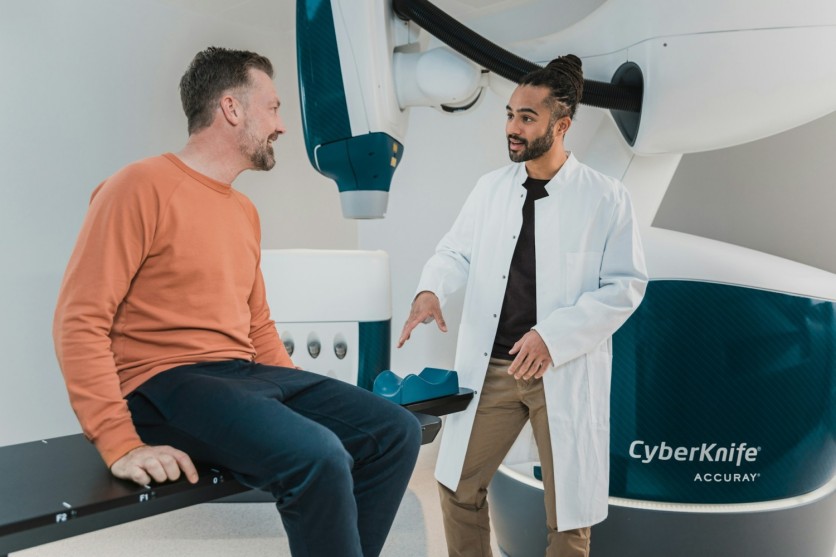
Car accidents are unexpected and can leave you shaken. Even if you feel fine initially, seeking medical attention is imperative. Here's why:
- Hidden injuries: Not all injuries are immediately apparent.
- Legal documentation: Medical records can be crucial for insurance claims.
- Peace of mind: Confirming your health status post-accident is essential.
- Prevent long-term issues: Early detection can prevent future complications.
- Professional advice: Doctors can guide recovery steps.
Now, let's explore the importance of seeing a doctor after a car accident:
Hidden Injuries Might Surface Later
Car accidents can cause internal injuries that may not manifest symptoms immediately. Conditions like whiplash, concussions, or soft tissue injuries might not show symptoms until hours or even days after the accident. So, if you still have question in your mind that when to see a doctor after accident? Instantly after an accident, you must visit so he can check for any hidden injuries. Seeing a doctor ensures timely detection of such injuries, preventing complications.
Legal Protection and Insurance Claims
Medical documentation is crucial for legal and insurance purposes after a car accident. Whether you plan to file an insurance claim or pursue legal action, having medical records documenting your injuries is essential. It strengthens your case and ensures you receive proper compensation for damages.
Assessment of Psychological Impact
Car accidents can have a significant psychological impact, even if physical injuries are minor. Symptoms like anxiety, post-traumatic stress disorder (PTSD), or depression might surface later. Consulting a doctor allows for assessing physical and psychological well-being, ensuring comprehensive care.
Identification of Underlying Conditions
Car accidents can exacerbate pre-existing medical conditions. Even if you don't notice immediate symptoms, the accident's impact could worsen conditions like arthritis or back problems. Consulting a doctor helps identify any exacerbations and facilitates appropriate management.
Documentation for Personal Injury Cases
Medical records serve as crucial evidence in a personal injury lawsuit. They document the extent of your injuries, treatment received, and prognosis. Without proper documentation, proving the damages incurred due to the accident becomes challenging.
Preservation of Legal Rights
Seeking medical attention after a car accident is not just about your health; it's also about protecting your legal rights. In many jurisdictions, there are statute limitations for filing personal injury claims. Delaying medical treatment can jeopardize your ability to seek compensation for damages.
Avoidance of Delayed Onset Injuries
Some injuries, particularly those affecting soft tissues, may have delayed onset symptoms. By seeing a doctor promptly, you increase the likelihood of detecting these injuries early. Early intervention can prevent these injuries from worsening and mitigate associated pain and discomfort.
Establishment of a Medical Record Trail
Visiting a doctor creates a documented trail of your medical care following the accident. This record can be invaluable for tracking your progress, especially if you require ongoing treatment or rehabilitation. It also serves as proof of your diligence in seeking appropriate medical care.
Evaluation of Head and Brain Injuries
Head injuries are common in car accidents, even if there are no visible signs of trauma. Symptoms such as headaches, dizziness, or confusion could indicate a concussion or other brain injury. A thorough evaluation by a medical professional is essential to rule out severe complications and provide appropriate care.
Addressing Soft Tissue Injuries
Soft tissue injuries, such as sprains, strains, or bruises, are common in car accidents. While they may seem minor, they can impact your mobility and daily activities if not adequately treated. Physical therapy, massage, or other interventions a doctor recommends can help speed up healing and restore function.
Monitoring for Internal Bleeding
Internal bleeding is a severe complication that can occur after a car accident, especially in cases of blunt-force trauma. Symptoms may not be immediately apparent, but early detection prevents life-threatening complications. A doctor can perform tests to assess for internal injuries and initiate appropriate treatment if necessary.
Comprehensive Assessment of Overall Health
A car accident can disrupt your overall health, not just the areas directly affected by the impact. Seeing a doctor allows for a comprehensive assessment of your health status, including factors such as blood pressure, heart rate, and general wellness. Addressing any underlying health issues early on can promote overall recovery and well-being.
Access to Resources and Support Services
Doctors can connect you with resources and support services to assist with your recovery process. This may include referrals to physical therapists, chiropractors, or counsellors specializing in trauma recovery. Tapping into these resources can enhance your recovery journey and regain control over your health.
Verification of Injuries for Insurance Purposes
Insurance companies often require medical documentation to process car accident claims. Visiting a doctor ensures that your injuries are properly documented, providing evidence to support your claim. This documentation can expedite the insurance settlement process and ensure that you receive the compensation you deserve.
In conclusion, seeking medical attention after a car accident is not just advisable—it's essential. By prioritizing your health and well-being, you set the stage for a smoother recovery and ensure you receive the care and support you need during this challenging time. Remember, your health is your most valuable asset, and taking proactive steps to protect it after a car accident is a decision you won't regret.
ⓒ 2025 TECHTIMES.com All rights reserved. Do not reproduce without permission.




